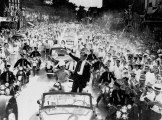
A Very Winning Loser
The Improbable Wendell Willkie: The Businessman Who Saved the Republican Party and His Country, and Conceived a New World Order
by David Levering Lewis
November 8, 2018 issue
Advertisement
More from the Review
Subscribe to our Newsletter
Best of The New York Review, plus books, events, and other items of interest
Susan Dunn, the Massachusetts Professor of Humanities at Williams, is the author of 1940: FDR, Willkie, Lindbergh, Hitler—the Election Amid the Storm. Her latest book is A Blueprint for War: FDR and the Hundred Days that Mobilized America. (November 2018)

A Very Winning Loser
The Improbable Wendell Willkie: The Businessman Who Saved the Republican Party and His Country, and Conceived a New World Order
by David Levering Lewis
November 8, 2018 issue
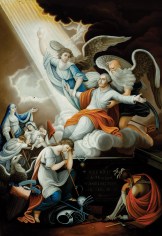
‘Our Father, the President’
The Indian World of George Washington: The First President, the First Americans, and the Birth of the Nation
by Colin G. Calloway
April 5, 2018 issue
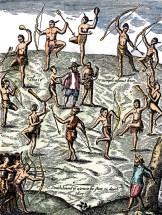
An Icy Conquest
“We are starved!” cried the sixty skeletal members of the English colony of Jamestown as provisions arrived in 1610.
A Cold Welcome: The Little Ice Age and Europe’s Encounter with North America
by Sam White
November 9, 2017 issue

Slaves in the White House
Ties That Bound: Founding First Ladies and Slaves
by Marie Jenkins Schwartz
May 11, 2017 issue
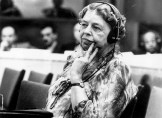
Eleanor in War and Love
Eleanor Roosevelt, Vol. 3: The War Years and After, 1939–1962
by Blanche Wiesen Cook
Eleanor and Hick: The Love Affair That Shaped a First Lady
by Susan Quinn
December 8, 2016 issue

The Revolution: Treason and Rescue
Valiant Ambition: George Washington, Benedict Arnold, and the Fate of the American Revolution
by Nathaniel Philbrick
The Quartet: Orchestrating the Second American Revolution, 1783–1789
by Joseph J. Ellis
August 18, 2016 issue
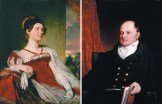
Angry, Icy, Enlightened Adams
The complex, contradictory John Quincy Adams
John Quincy Adams: American Visionary
by Fred Kaplan
Louisa Catherine: The Other Mrs. Adams
by Margery M. Heffron, edited by David L. Michelmore
A Traveled First Lady: Writings of Louisa Catherine Adams
edited by Margaret A. Hogan and C. James Taylor, with a foreword by Laura Bush
June 5, 2014 issue
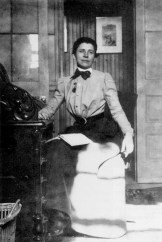
The TR Show
Doris Kearns Goodwin's 'The Bully Pulpit'
The Bully Pulpit: Theodore Roosevelt, William Howard Taft, and the Golden Age of Journalism
by Doris Kearns Goodwin
February 20, 2014 issue
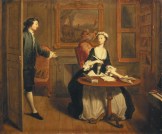
The Other Franklin
Book of Ages: The Life and Opinions of Jane Franklin
by Jill Lepore
October 24, 2013 issue
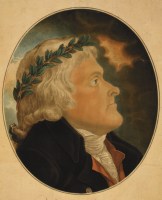
When America Was Transformed
Empire of Liberty: A History of the Early Republic, 1789–1815
by Gordon S. Wood
March 25, 2010 issue
Subscribe and save 50%!
Read the latest issue as soon as it’s available, and browse our rich archives. You'll have immediate subscriber-only access to over 1,200 issues and 25,000 articles published since 1963.
Subscribe now